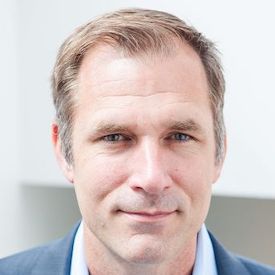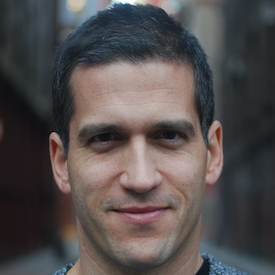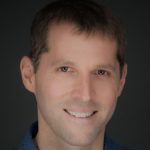Mike Hayes is the former commanding officer of Navy SEAL Team Two, leading a two-thousand-person Special Operations task force in southeastern Afghanistan. He was also a White House Fellow, Director of Defense Policy and Strategy at the National Security Council, and has served in several C-level roles in the private sector. Currently, he is Managing Director at Insight Partners, a software investment firm.
What’s the big idea?
A life of purpose won’t fall into your lap. People who spend their time reacting to events and sudden opportunities are at risk of feeling empty and starved of fulfillment. To find meaningful achievement, you must put in the work of identifying your mission and then go after it.
Below, Mike shares five key insights from his new book, Mission Driven: The Path to a Life of Purpose. Listen to the audio version—read by Mike himself—below, or in the Next Big Idea App.

1. Who is the foundation for what.
I’ve had a lot of jobs—from a dishwasher at a local restaurant when I was 16, to the SEALs, the White House, the C-suite, and beyond. While the details of each role (what I call the what) absolutely matter, the who (the person you are, regardless of the role) matters far more. It’s a shame that all too often we start conversations by asking people what they do instead of trying to learn about who they are, because it’s the who that will take you to your ultimate destination.
When I talk about the who, I’m talking about the you deep down and the life you want to live. This is a level up from what you spend your time doing. Your who is formed by the principles that guide you; it’s the aspirational person you’re hoping to see when you look in the mirror. Are you the community builder who brings everyone together? The class clown, ensuring that people are always laughing? Are you the “personality hire” who may be half a step slower intellectually, but the one individual who can unite the whole office? Are you an adventurer and explorer? A dreamer? A doer? A caregiver? You may be all of these, or none of them, but you are composed of a set of ideas and ideals, interests and passions, goals and guiding lights.
The what changes throughout life, but understanding your who—deeply, meaningfully, powerfully—is the only way to land on the right what. The gap between your who and your what is where your disappointments and frustrations lie. The wider the gap, the emptier you feel, and the more you want to run away from your life and start again. Narrow the gap, and then you feel whole, satisfied, and mission-driven.
2. Make sure ambition is pushing you in the right direction.
Ambition is the concrete application of our who: It means having a goal we’re working toward and a level of determination around attaining it. The intensity around that desire is ambition, which makes ambition a great thing when it’s taking us to the right place, and potentially a harmful quality when it leads us astray. Ambition is the fuel that drives the train faster, so we want to be sure it’s headed to the right station.
High-performing individuals fall into a dangerous trap when they act without having a crystal-clear destination in mind. Their ambition can move them quickly, but who knows where they’ll end up? It can become far too easy to work toward another’s definition of success instead of your own. But that won’t feel like true success in the end.
“It can become far too easy to work toward another’s definition of success instead of your own.”
One of the masters of ambition I had the privilege to work with was Pat Gelsinger, the former CEO of VMware and Intel. When he was at VMware, where I served as Chief Digital Transformation Officer before later becoming Chief Operating Officer, Pat held people to an ambitiously high standard and pushed them to accomplish even more than they ever imagined. Many people would say that his pushes were impossible, and sometimes they were. But sometimes they weren’t—and extraordinary breakthroughs were achieved.
Pat knew that if he didn’t push, no one would. When he left VMware, Pat urged me to continue to set and uphold high standards. “Without that pressure, the company’s performance will be mediocre.” He was right. Ambition can help provide the pressure we all need to succeed.
3. Giving pays off in the short run and the long run.
Most of us understand how giving pays dividends in the moment. Visiting wounded warriors when I was in the SEALs was ostensibly for their benefit, but I always left those visits profoundly moved, inspired, and energized to be and do more. But I make the case that it pays dividends in the long run even more. Giving pays off in the collective sense because a world in which we are all oriented toward giving is a better world. And individually, it pays off because if you make yourself worthy of being invested in, people will invest in you.
Helpers recognize those same impulses in others; they understand who has the same orientation to give back and who does not. You start out doing it because it’s the right thing, and once you recognize that helping yields a great return, you keep on doing it.
It does not diminish the service you provide if you act strategically. It does not make you a craven individual if you give in ways that you imagine might lead to opportunities in the future. The giving still counts. Helping my friend’s son get an internship still counts, even if, as I make those phone calls, I use them as opportunities to remind the people I’m calling that I exist and that I am always here to help them. It still counts if I use it as a chance to network an introduction to someone I might have never otherwise had a chance to meet. It is perfectly okay and entirely reasonable to invest in giving activities that are more likely to come back to you in positive ways.
4. A job search should be top-down, not bottom-up.
Our best professional opportunities are found within the intersection of what gives us energy, what we are good at, and what the world needs. But you have to figure out where that takes you and not just react to the jobs that fall into your lap. So many SEALs struggle when they transition from the military because they don’t truly know what they’re looking for. The life of a SEAL is so focused on the day-to-day of being in the military that there’s little room to do bigger-picture thinking.
“It doesn’t matter what opportunities are out there unless they’re the right ones.”
I’ve seen too many ex-SEALs start their job search with an open-ended call to their network, hoping an opportunity comes through—but that’s a prime example of bottom-up thinking. You take the couple of choices you’ve been given and pick the best of them. Sometimes that’s fine, but oftentimes none of what emerges from a haphazard process like that is going to be the right fit. You might end up with a decent job, but is your mission going to emerge in this way?
The better way to find what will achieve your mission is far more often top-down: It doesn’t matter what opportunities are out there unless they’re the right ones. You need to direct the search, know what you’re looking for, and take intentional action to generate the very best, most targeted opportunities for you.
5. We can all strive to change the world.
In the corporate arena, there is a scoreboard: stock price, revenue growth, net profit, individual salary. But feeling valued—and feeling like what you are doing has value to your community and the world—is about more than a number.
We have to ask ourselves: Are we having the kind of impact we want? Is our mission the right one? You should never spend time pursuing a mission where you don’t see the ultimate value, whether that value is lifting up others through an issue you care deeply about or giving you the financial flexibility to live the life you want.
Having a purpose when I was a SEAL was easy; the impact was often quite clear, life-and-death, solving tangible problems around the globe. But finding purpose when it isn’t quite so obvious can be challenging. The important part isn’t what we do but that we do something, or lots of somethings, getting off the sidelines and taking ownership of some small piece of this great nation and planet.
“You should never spend time pursuing a mission where you don’t see the ultimate value.”
Everything is steered by someone, and so we just need to be one of those someones steering society in the direction we want it to move in. The world can’t just be made up of takers—people responding to decisions and events. Someone is causing those events, actions, and reactions, and there’s no reason it shouldn’t be you, me, all of us.
In the SEALs, we say a person dies two deaths. One is physical, and the other is the last time anyone on Earth says their name. I personally work hard to #neverforget to keep my great teammates, in some small way, alive. But I push you to ask yourself: Who will keep your name alive when you’re gone? Every day, can you do something to expand that list?
Enjoy our full library of Book Bites—read by the authors!—in the Next Big Idea App:
































